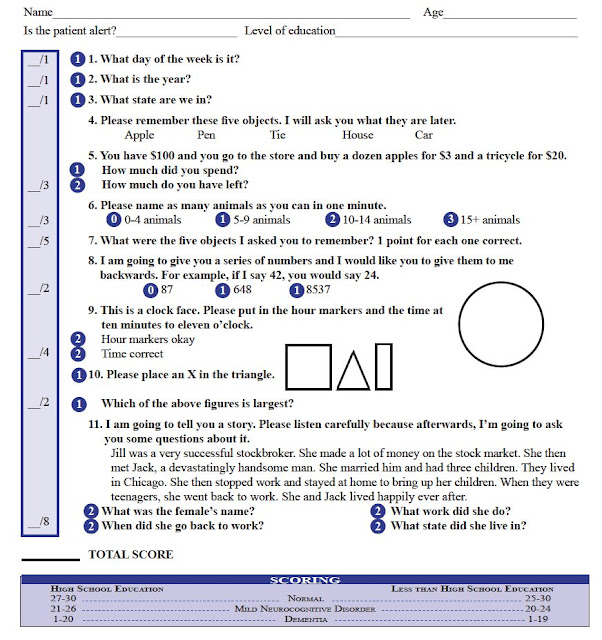The photo above comes from a StarTribune article about a "mini-cog[nition]" test that was recently given to veterans and revealed evidence of dementia or cognitive impairment that had not previously been diagnosed clinically.
The mini-cog is one of a number of memory tests that have started to pop up in routine checkups for older patients around the country, including at Allina clinics in Minnesota. In this case, the test involves memorizing three words and drawing the face of a clock.Last summer my mother was diagnosed with dementia when a social worker at a senior housing complex administered the Saint Louis University Mental Status Exam (SLUMS) as part of an entrance evaluation. For those not familiar with it, here is the full test -
I met with the social worker afterwords, and in our analysis of the results I noted that mom had misdrawn the clock face, but realized that for the past 20+ years, she had not seen one. She did not wear a watch and had been living in a condo that had a digital clock in the bedroom, a digital clock on the stove, and a digital clock on the microwave.
Our discussion did not change the interpretation of the results in any meaningful way, but it did raise questions in both our minds as to whether interpreting a clock face is such a fundamental piece of knowledge that it should never be impaired, or whether current testing should be altered to reflect new technology. Now I see interpreting a clock face is still part of an even-briefer screening exam for dementia.
If you're reading this blog, you certainly have no cognitive impairment, but if you'd like to try the SLUMS test on a parent (or spouse), you can view or print it from the Saint Louis University School of Medicine.


ليست هناك تعليقات:
إرسال تعليق